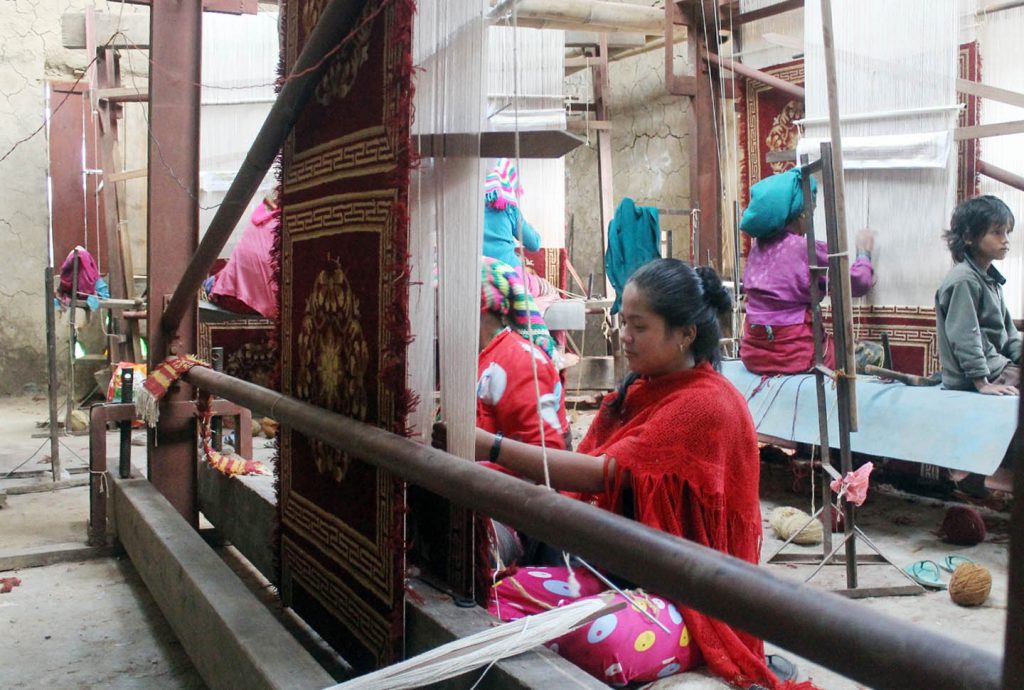Srijana Tamang lost her home in the devastating earthquake of 2015. She is misplaced and is weaving carpet after losing her home. Her village in Sindupalchok is not even suitable for living, after earthquake cracked its ground. She lives in a temporary shelter camp and is busy weaving carpet with the hope that she will someday collect enough money to buy a house.
She lives together with six other neighbors in the temporary shelter. With the understanding that the compensation provided by the government will not be enough for building a house, thus she had to start working.
The only expectation she has is, “After cutting off the expenses of food, the remaining money I made will be saved for a house.” Her hometown is no more suitable for living, hoping the government will provide land to the displaced, she dreams of building a house in the provided land.
After Srijana’s progress in weaving carpets, the other women of the shelter too are developing interest in the work. Srijana expresses how other women are developing interest looking at the map of carpet placed in front of her.

Srijana’s husband for the same purpose of building a house works as a labor in construction projects. Jalmaya Gole another displaced women of Banskharkha, Sindhupalchok says there is been saving after the carpet factory started nearby the shelter. Her time from morning to evening is spent weaving carpet everyday. The carpet weavers are happy to get a work, that they can skillful perform on their own. 9 women, all earthquake victims work in the factory. They are attempting to teach the skill of weaving carpet to rest of the women as well.
Chiveki Mili Gole is other women, who lost her house in landslide. They together weave carpet in “Khusi Carpet Industry”. This has opened a doorway for income generation for them. On average, it takes seven days to weave a carpet. The income they generate from one carpet ranges from seven thousand to eight thousand.
The carpet factory was established by few swish people visiting Sindhupalchowk. The work in the factory starts from 4am itself. Women working there say, there is no home, so no work to do at home, there is no land for farming, that why we arrive the factory at very early morning 4am.
To read in Nepali: https://www.hamrokatha.com/2017/08/31/1873.html


